Discover Counselor Toolbox Podcast with DocSnipes
Counselor Toolbox Podcast with DocSnipes

Counselor Toolbox Podcast with DocSnipes
Author: Dr. Dawn-Elise Snipes
Subscribed: 10,100Played: 804,879Subscribe
Share
© 2022 CDS Ventures, LLC
Description
Counselors, coaches and sober companions help hundreds of thousands of people affected by Addictions and Mental Health issues each year. Learn about the current research and practical counseling tools to improve your skills and provide the best possible services. Counselor Toolbox targets counselors, coaches and companions, but can also provide useful counseling self-help tools for persons struggling with these issues and their loved ones. AllCEUs is an approved counseling continuing education provider for addiction and mental health counselors in most states. Counseling CEUs are available for each episode.
1053 Episodes
Reverse
00:00 Introduction & Overview of Caregiver Burnout
01:20 Recognizing Burnout: Signs & Symptoms
03:32 Self-Awareness and Burnout Prevention
05:05 Mindfulness Check-Ins & Prioritizing Needs
07:01 Balancing Caregiving with Daily Tasks
13:06 Seeking Support and Help from Others
18:32 Simplifying Responsibilities & Effective Communication
21:00 Losing Empathy and Compassion in Caregiving
23:18 Causes of Burnout: Control, Stress & Uncertainty
33:40 Managing Difficult Behaviors & Triggers
41:00 Dealing with Resentment in Caregiving
49:29 Setting Boundaries and Creating Win-Wins
51:05 Synergy: Working with Other Caregivers
54:08 Maintaining Healthy Relationships with Household Members
55:05 Recharging & Self-Care for Caregivers
56:15 Overcoming Negative Self-Talk and Self-Efficacy Issues
59:13 Seeking and Communicating Support Needs
01:01:01 The Broader Impact of Burnout
01:01:34 Mindful Strategies to Prevent Caregiver Burnout
01:02:18 Empowerment, Limits, and Celebrating Success
Learn more about your ad choices. Visit megaphone.fm/adchoices
00:00 Welcome & Overview
01:00 Who Are Caregivers?
03:00 Impact of Caregiver Stress
06:00 Circadian Rhythms & Hormones
11:00 Sleep Disruption in Caregivers
13:00 Pain, Injuries & Ergonomics
18:00 Poor Sleep & Stress Response
21:00 Physical Energy & Hypervigilance
25:00 Emotional & Cognitive Strain
31:00 Nutrition, Hydration & Self-Care
39:00 Chronic Diseases & Delayed Care
45:00 Inflammation, Immunity & Gut Health
49:00 Interventions for Burnout Prevention
55:00 Practical Tips & Self-Reflection
58:00 Audience Q&A & Community Support
01:01:00 Closing & Next Steps
Learn more about your ad choices. Visit megaphone.fm/adchoices
00:00 Is Your Inner Child Sabotaging You?
00:42 Understanding the Anxious Inner Child
01:30 Origins of Inner Child Triggers
02:19 Stress Response and Mental Health
03:14 Hormones, Neurotransmitters & Mood Swings
04:00 Physical Effects: Tension & Inflammation
04:46 Self-Esteem, Trust, and Relationships
05:59 Emotional Distress & Dysregulation
07:09 How Inner Child Work Helps
08:14 Cognitive Rigidity Under Stress
09:13 The Inner Critic and Old Beliefs
10:10 Managing Environmental Triggers
11:21 Breaking the Autopilot Cycle
11:59 Responding to Your Inner Child Compassionately
12:59 Healing, Growth, and Positive Change
Learn more about your ad choices. Visit megaphone.fm/adchoices
00:00 Introduction & What is the Inner Child?
00:26 Origins: Childhood Memories and Experiences
01:13 Secure Attachment: Definition and Benefits
02:47 How Secure Attachment Shapes Self-View
03:10 Cognitive Patterns in Childhood
03:45 Chaos, Attachment, and Internalized Beliefs
04:54 Fight, Flight, Freeze, Fawn, and Flop Responses
08:00 Chronic Stress and Its Impact on Development
09:03 Recognizing Power and Safety in Adulthood
10:04 Challenging Childhood Expectations
10:44 Emotional Regulation and Problem Solving
11:30 Erikson's Stages of Psychosocial Development
14:44 Inner Child Triggers in Adult Life
15:17 Healing the Inner Child: Processing & Growth
16:41 Practical Example: Overcoming Childhood Messages
17:03 Resources and Community
17:35 Reconnecting and Integrating the Inner Child
Learn more about your ad choices. Visit megaphone.fm/adchoices
00:00 Introduction to Oxytocin
00:28 Why Oxytocin Matters: Key Health Benefits
01:52 What is Oxytocin? Role in the Brain
02:59 Oxytocin and Survival: Bonding and Threat
03:17 Oxytocin’s Impact on the Nervous System
04:07 Stress Reduction, Safety, and Oxytocin
05:06 Therapeutic Applications: Animal-Assisted Interventions
06:07 Circadian Rhythms and Sleep Improvement
07:12 Oxytocin and Sleep Quality
09:05 Physical Healing, Immunity, and Stress
09:56 Anti-inflammatory Effects and Immunity
13:05 Gut Health and Nutrient Absorption
16:04 Oxytocin’s Role in Nutrition and Metabolism
17:26 Oxytocin and Immune System Strength
18:49 Pain, Healing, and Energy with Oxytocin
21:31 Appetite, Weight, and Emotional Eating
24:19 Hormones and Long-Term Stress Effects
26:08 Oxytocin, Estrogen, Testosterone, and Behavior
28:20 Oxytocin and Mental Health Disorders
31:31 Oxytocin: Serotonin, Dopamine, and Brain Chemistry
33:07 Anxiety, Social Cues, and Cognitive Functions
35:51 Oxytocin in ADHD, Autism, and Avoidance
39:58 Oxytocin’s Role in PTSD, Trauma, and Personality Disorders
45:00 Interpersonal Effects and Empathy
47:47 How Context and Safety Shape Oxytocin’s Impact
52:02 Diet, Nutrition, and Lifestyle Strategies
53:20 Behavioral Practices to Boost Oxytocin
58:49 Social Bonding, Forest Bathing, and Unique Boosters
01:00:05 Physical Warmth, Touch, and Laughter
01:01:02 Collaboration and Social Activities
01:02:04 Summary: Oxytocin as the Survival Hormone
01:03:08 Q&A, Gut Health Stories, and Closing Thoughts
Learn more about your ad choices. Visit megaphone.fm/adchoices
00:00 Welcome & Presentation Overview
00:16 Understanding NPD: Physiology & Triggers
01:36 Narcissistic Traits vs. Personality Disorder
02:31 Neurological & Physiological Mechanisms
03:39 Brain Structure Differences in NPD
04:44 Medial & Orbital Frontal Cortex in NPD
05:59 Empathy Deficits: Affective vs. Cognitive
07:01 Autonomic Nervous System Dysfunction
08:54 Inflammation, Stress, and Mood Instability
10:36 Oxidative Stress & Neuroinflammation
12:12 Gut Microbiome & Personality Connections
14:05 Diet, Sleep, and Environmental Factors
17:03 Origins: Development from Childhood
20:17 Socialization, Self-Esteem & Validation
22:49 Attachment, Neglect & Grandiosity
25:02 Parenting Styles & NPD Risk
28:28 Impaired Empathy & Manipulation
31:04 Emotional Processing Deficits
33:45 Cognitive Distortions & Impulsivity
36:41 Cultural Influences & Social Media
38:30 Clinical Approach: Rapport & Engagement
41:09 Therapy Techniques: Collaboration & Curiosity
43:50 Strengths-Based & Socratic Questioning
45:02 Communication Strategies in Therapy
50:40 Elite Framing & Engagement
53:39 Somatic & Self-Care Interventions
54:52 Roleplaying & Perspective-Taking
56:06 Distress Tolerance & Shame Resilience
58:38 Challenging Rigid Thought Patterns
59:44 Managing Triggers & Stressful Environments
01:00:02 Summary: Multidimensional Treatment for NPD
Learn more about your ad choices. Visit megaphone.fm/adchoices
00:00 Welcome & Presentation Overview
00:15 Defining Personality Disorders & Trauma
00:43 Maladaptive Patterns & Trauma Responses
01:57 Trauma’s Impact on Self & Relationships
03:06 Differentiating CPTSD and BPD
04:02 Childhood Trauma, Symptoms & Development
05:31 Adverse Childhood Experiences and Attachment
07:02 Developmental Impacts of Attachment Disruption
08:16 Diagnosing: Avoiding Overlapping & Stacking
10:10 Concerns of Pathologizing & Labeling
13:02 BPD, Trauma, and Relationship Patterns
16:26 PTSD and CPTSD Diagnostic Criteria Comparison
17:48 Symptom Overlap in PTSD, CPTSD, and BPD
18:49 Affect Dysregulation & Emotional Instability
20:20 Exploring Trauma-Driven Behaviors
22:00 Emotional Dysregulation: The Flat to the Furious
24:14 Core Beliefs, Self-Image & Worthlessness
26:11 Relationship Struggles in CPTSD & BPD
28:34 Functional Impairments, Self-Harm & Substance Use
29:09 Trauma at the Root of Symptom Development
30:09 Onset and Course of Symptoms
31:05 Trauma Manifestations in Children & Teens
33:02 Reinforcing Survival Behaviors
34:08 Adulthood: Functional Impairment & Remission
36:01 Trauma Lens: Behavior Formation
36:34 Neuroscience & Biology of Trauma
39:01 Vagal Tone, Stress Reduction & Physical Health
41:06 Biochemical & Brain Structure Changes
42:27 Empowerment & Safety in Recovery
43:57 Grounding Skills, Unhooking, & Distress Tolerance
45:08 Reframing Survival Behaviors
47:02 Identifying & Managing Vulnerabilities
48:06 Tracking Progress & Defining Goals
50:08 Motivational Strategies & Vision Boards
53:06 Physical Wellness: Sleep, Diet & Vagal Tone
55:13 Relationship Skills: Boundaries & Authenticity
56:57 Attachment, Self-Esteem & Inner Critic
59:19 Relationship Patterns & Alternatives
01:00:25 Emotional Compassion & Self-Kindness
01:01:13 Journaling, Activation & Worry Scheduling
01:01:35 Schemas & Cognitive Restructuring
01:03:05 Addressing Cognitive Distortions
01:04:26 Environmental Triggers & Positive Cues
01:06:51 Pharmacological Interventions
01:07:47 The Holistic Approach to Recovery
01:08:54 Summary: Recovery is Possible
Learn more about your ad choices. Visit megaphone.fm/adchoices
00:00 Intro & Schizophrenia Research Overview
00:11 Genetic and Environmental Foundations
00:31 Neurotransmitters and the Dopamine Hypothesis
01:56 Role of Stress and Trauma
03:32 Neurological Findings in Schizophrenia
06:59 Autoimmune Disorders and Inflammation
10:04 Inflammation & Immune System Impact
13:06 Stress Hypothesis and PTSD Link
15:44 Childhood Trauma and Brain Development
17:01 Physical Stress & Sleep Deprivation
17:59 HPA Axis, Cortisol, and Neurotoxicity
20:31 Hormonal Influences: Estrogen, Testosterone, Oxytocin
27:00 Testosterone Effects in Men & Women
31:02 PCOS, Testosterone & Psychosis Risk
34:39 Oxytocin's Role in Stress and Social Function
35:46 Gut Microbiome and Schizophrenia
38:42 Microbiome Imbalances and Supplementation
41:06 Diet, Blood Markers & Monitoring Insights
43:13 Wearable Tech & Digital Biomarkers
44:08 Medication Impacts & Side Effects
45:53 Sleep Disruption and Psychotic Symptoms
47:07 Deep Sleep, Memory & Inflammation
50:53 Sleep Architecture in Schizophrenia
53:01 Antipsychotics, Fatigue, and Motivation
54:25 Vagus Nerve & Parasympathetic System
55:28 Neuromodulation: Ultrasound & Alternatives
56:34 Key Takeaways: Stress, Inflammation, and Recovery
58:00 Q&A: Oxytocin Nasal Spray & New Therapies
59:09 Empowerment and Reducing Relapses
01:00:31 Menopause, Estrogen & Late-Onset Schizophrenia
01:01:31 GABA, Glutamate, and Brain Chemistry Recap
Learn more about your ad choices. Visit megaphone.fm/adchoices
00:00 Introduction & Overview of Emerging PTSD Treatments
00:31 EMDR: Gold Standard Trauma Processing
01:53 Who Benefits Most from EMDR
02:31 Cognitive Behavioral Therapies & CPT
03:23 CPT Techniques: Reframing Trauma
04:43 Benefits of CPT for PTSD Symptoms
05:17 Prolonged Exposure Therapy & VR Integration
06:16 Processing Memories with Wise Mind
07:27 Desensitization & Reducing Avoidance
09:05 Handling Triggers & Building Empowerment
10:38 Medications: SSRIs & Prazosin
11:57 Evaluating Medication vs Holistic Approaches
13:00 Psychedelics for PTSD: MDMA, Psilocybin, LSD
14:43 Mechanisms & Evidence for Psychedelic Therapy
17:01 Psilocybin: Neurogenesis and Mindfulness
18:10 Acceptance & Commitment Therapy with Psychedelics
19:33 LSD-Assisted Psychotherapy & Core Belief Change
21:21 Ego Dissolution & Brain Networks
22:12 Outcomes & Complex PTSD Treatment
23:39 Other Psychedelics & Their Status
24:39 Trauma Sensitive Yoga: Benefits & Caveats
25:48 Yoga for Mindfulness and Body Awareness
27:09 The Role of the Gut Microbiome in PTSD
28:36 Microbiome, Stress Response & Neuroinflammation
30:45 Balancing Gut Health to Aid Healing
31:48 Vagus Nerve Stimulation: Resetting the Stress System
33:04 Biofeedback & Strengthening Vagal Tone
35:04 Empowerment via Vagus Nerve Stimulation
37:36 Non-Invasive Vagal Stimulation Methods
39:21 Transcranial Magnetic Stimulation (TMS) for PTSD
41:44 Sleep, Hyperarousal & PTSD
43:37 Addressing Sleep Apnea and PTSD Outcomes
45:01 Targeting Sleep for Better Recovery
46:07 Oxytocin Nasal Spray for Social Connection
47:01 Oxytocin for Reducing Fear and Withdrawal
48:43 Summary: Holistic Treatment Goals for PTSD
51:01 Physical, Interpersonal, and Emotional Tools
53:39 Cognitive and Environmental Strategies
55:25 Wrap Up: Empowerment and System Rebalancing
56:16 Q&A: Audience Questions & ECT Comparison
57:14 Closing Remarks
Learn more about your ad choices. Visit megaphone.fm/adchoices
00:00 Introduction & Goals
01:00 Understanding Anxiety: Symptoms and Roots
03:30 Fight, Flight, Freeze, Fawn & Flop: The Stress Response
07:00 How Anxiety Affects Mind and Body
10:00 Chronic Anxiety & Stress Physiology
13:00 Traditional Treatments & Their Limits
16:00 Emerging Treatments: TMS, Ketamine, Esketamine
20:00 Vagus Nerve, Gut-Brain Axis & Inflammation
23:00 Microbiome, Peptides & Mood Regulation
27:00 Key Gut Peptides & Anxiety
31:00 Natural Ways to Boost Gut Health & Peptide Activity
36:00 Diet, Supplements, and Probiotics
41:00 Intermittent Fasting for Gut, Mood & Anxiety
48:00 Sleep: The Overlooked Intervention
51:00 Building a Better Sleep Routine
54:00 Holistic Approaches: Healing Body & Nervous System
56:00 Audience Q&A - Microbiome, Diet & Mood
58:00 Final Thoughts, Gradual Change & Goodbye
Learn more about your ad choices. Visit megaphone.fm/adchoices
00:00 Welcome & Overview of Depression Treatments
00:16 Emerging Interventions Explored
00:45 Deep Dive: Transcranial Magnetic Stimulation (TMS)
04:01 Effectiveness and Applications of TMS
06:02 Understanding Treatment-Resistant Depression
07:49 Neuroimaging Insights & TMS for Older Adults
11:05 Advances in TMS Targeting and Integration
14:43 Anti-Inflammatory Approaches in Depression
20:41 Inflammation’s Role in Mood Regulation
25:14 Managing Depression: Exercise, Diet, and Lifestyle
27:37 The Power of Diet & Probiotics
32:02 Reducing Stress and Repairing the Nervous System
34:12 Gut Health and Mental Health Connection
40:48 Microbiome, Leaky Gut, and Mood
45:03 Prebiotics, Fermented Foods & Microbiome Support
46:00 Phytotherapy: Herbal Approaches to Depression
48:42 Ketamine & Esketamine for Rapid Relief
51:11 Circadian Rhythms and Sleep in Depression
54:01 Routine, Light Therapy & Relaxation Strategies
55:04 Genomic Sequencing & Tailoring Treatment
56:26 Oxytocin, Chiropractic Care, and Vagus Nerve
59:59 Acupuncture & Innovative Nerve Stimulation
01:00:38 Conventional Checks: Hormones, Nutrition & Diagnosis
01:01:37 Why Depression Is Individualized
01:02:12 Importance of Holistic, Individual Approaches
01:02:35 Q&A: TMS for Substance-Related Brain Changes
01:04:02 Dietary Recommendations & Viewer Thanks
01:05:02 Therapy Protocols for TMS Clients
01:07:30 Exercise, Motivation & Client Engagement
01:08:25 Future Research and Alternative Medications
01:09:12 Closing Remarks & Takeaways
Learn more about your ad choices. Visit megaphone.fm/adchoices
0:00 Physical Impact
19:00 Interpersonal Impact
38:00 Emotional Impact
57:00 Cognitive Impact
1:16:00 Environmental Impact
1:35:00 Spiritual Impact
Learn more about your ad choices. Visit megaphone.fm/adchoices
00:00 Introduction: Drug-Induced Brain Damage
01:19 Physical, Emotional, and Cognitive Impacts
03:09 Alcohol’s Effect on the Brain and Body
04:19 Key Brain Regions Affected by Substances
07:22 Understanding Substance-Induced Brain Disorders
08:15 How Different Drugs Cause Brain Atrophy
08:56 Alcohol: Neurotoxicity and Deficiencies
10:59 Stimulants, Opioids, and Inhalants: Brain Impacts
14:23 Cannabis and Other Substances: Neurocognitive Effects
15:46 Substance Use, Symptoms, and Treatment Challenges
16:51 Hallucinogens and Long-term Perceptual Disturbances
20:01 Delirium and Chronic Traumatic Encephalopathy
23:04 Thiamine Deficiency: Wernicke-Korsakoff Syndrome
27:48 Diagnosing and Managing Alcohol-Related Brain Damage
31:02 Prevalence and Underdiagnosis of Brain Injury
34:39 Dementia Risks and Alcohol Consumption Guidelines
38:01 Healing the Brain: Recovery and Lifestyle Changes
42:01 Alcohol-Related Brain Disorders: Symptoms and Assessment
45:11 Treatment Options and Hope for Recovery
46:25 Vascular Dementia: Causes and Symptoms
49:28 Fetal Alcohol Spectrum Disorders (FASD)
53:01 Diagnosing FASD and Client Profiles
56:00 Treatment Challenges for FASD
58:07 FASD in Correctional and Clinical Settings
59:39 Summary: Risks and Considerations for Clinicians
01:00:26 Q&A and Resources
Learn more about your ad choices. Visit megaphone.fm/adchoices
00:00 Introduction & Overview
00:16 Defining Post-Acute and Long-Term Care
01:06 Levels and Types of Care Facilities
02:08 Addiction in the General Population
02:58 Hospitalization and Addiction Statistics
04:54 Prevalence of Substance Use Disorders in Care
05:48 Screening for Co-Occurring Issues
07:08 Medication Management Risks
09:02 Self-Administration & Diversion Concerns
12:00 Alcohol Access and Facility Policies
15:00 Unconventional Substance Use Risks
17:01 Vulnerabilities in Care Settings
18:29 Sleep, Circadian Rhythms & Recovery
20:57 Pain and Physical Vulnerabilities
23:06 History of Addiction and Detox Issues
25:09 Interpersonal & Emotional Vulnerabilities
27:13 Self-Esteem, Trauma & Communication
29:07 Emotional Intelligence & Coping
31:10 Cognitive and Organizational Vulnerabilities
34:42 Environmental Risks & Supervision Gaps
36:31 Triggers for Substance Use
39:45 Medication Management, Seeking, & Diversion
43:52 Rehabilitation Setbacks and Grief
47:05 Interpersonal Manipulation & Emotional Distress
49:08 Cognitive Triggers and Facility Management
51:05 Environmental Triggers Unique to Care Settings
52:54 Role of Antipsychotics and Misuse
53:45 Key Takeaways & Strategies for Prevention
55:52 Course Completion & Wrap-Up
Learn more about your ad choices. Visit megaphone.fm/adchoices
Learn more about your ad choices. Visit megaphone.fm/adchoices
Essential Skills for Diabetes-Related Disability Adjustment Counseling for social workers, disability management and rehabilitation counselors from a diabetes EXPERT. In this video, a diabetes disability adjustment expert shares their top counseling skills for managing disabilities. Perfect for counselors, social workers, and anyone in the field of disability management!
Learn more about your ad choices. Visit megaphone.fm/adchoices
Learn more about your ad choices. Visit megaphone.fm/adchoices
•Review the scope of practice
for clinicians
•Identify who is involved
•Review the most common
cognitive staging tools and their
purpose
•Discuss evidence based
interventions for
• Physical symptoms like pain and
sympathetic dominance
• Interpersonal symptoms
• Emotional symptoms
• Cognitive symptoms
Learn more about your ad choices. Visit megaphone.fm/adchoices
00:00 Welcome & Overview of Dementia
01:20 Defining Dementia & Cognitive Decline
04:30 Symptoms and Impacts on Daily Life
08:40 Executive Function & Memory Impairments
12:00 Alzheimer’s Disease: Causes & Progression
19:00 Alzheimer’s Symptoms: Early to Late Stages
24:10 Vascular Dementia: Causes & Risk Factors
30:00 Stroke and FAST Screening
34:40 Stepwise Decline in Vascular Dementia
36:50 More Dementia Types: Lewy Body & Frontotemporal
43:10 Lewy Body Dementia: Symptoms & Fluctuations
49:40 Frontotemporal & Parkinson’s Dementia
52:00 Consequences of Dementia on Health & Function
57:00 Common Causes of Misdiagnosis
01:00:00 Differentiating Dementia from Normal Aging
01:03:30 Screening Tools and When to Refer
01:07:00 Navigating the Healthcare System & Advocacy
01:11:00 Closing Thoughts & Support Resources
Learn more about your ad choices. Visit megaphone.fm/adchoices
00:00:00 - Introduction: Overview of the 32 risk factors contributing to dementia.
00:00:35 - Early Life Education: Importance of education and cognitive reserve in childhood.
00:03:40 - Midlife Hypertension: Impact of hypertension on brain health and dementia.
00:06:10 - Hypoxia: Role of oxygen deprivation in cognitive decline.
00:08:05 - Sleep Apnea and Breathing Issues: Discussion on apnea, snoring, and their link to dementia risk.
00:11:35 - Obesity and Inflammation: Effects of excess fat tissue on brain inflammation.
00:14:10 - Diabetes and Blood Sugar Management: Stress and sugar levels as contributors to cognitive decline.
00:18:45 - Hearing Loss: The connection between untreated hearing loss and dementia.
00:22:20 - Vision Loss: Impacts of vision impairment on brain activity and stress.
00:26:30 - Poor Diet and Dehydration: Diet quality, hydration, and their influence on cognition.
00:30:15 - Antioxidants and Ultra-Processed Foods: Role of colorful diets and avoiding processed foods.
00:34:00 - Physical Activity: Benefits of exercise in reducing dementia risks.
00:38:40 - Autoimmune Disorders: Links between systemic inflammation and cognitive decline.
00:42:10 - Social Isolation: Importance of social interactions in maintaining brain health.
Learn more about your ad choices. Visit megaphone.fm/adchoices





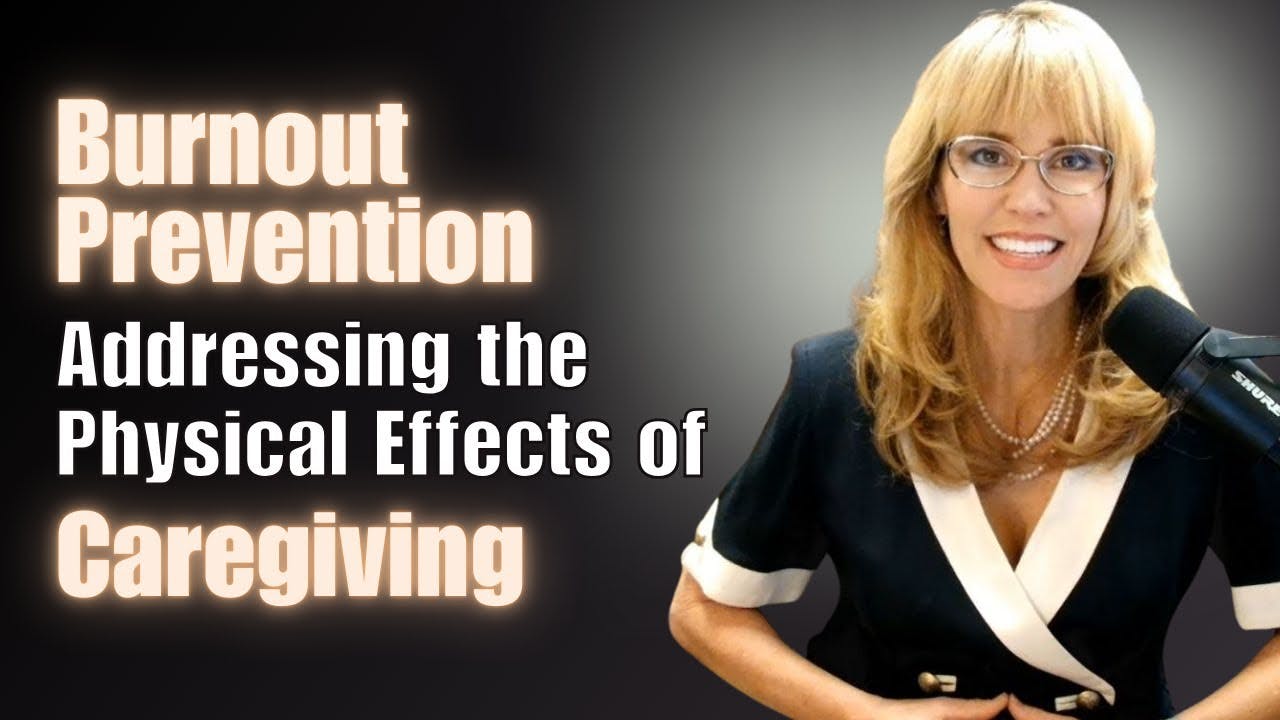
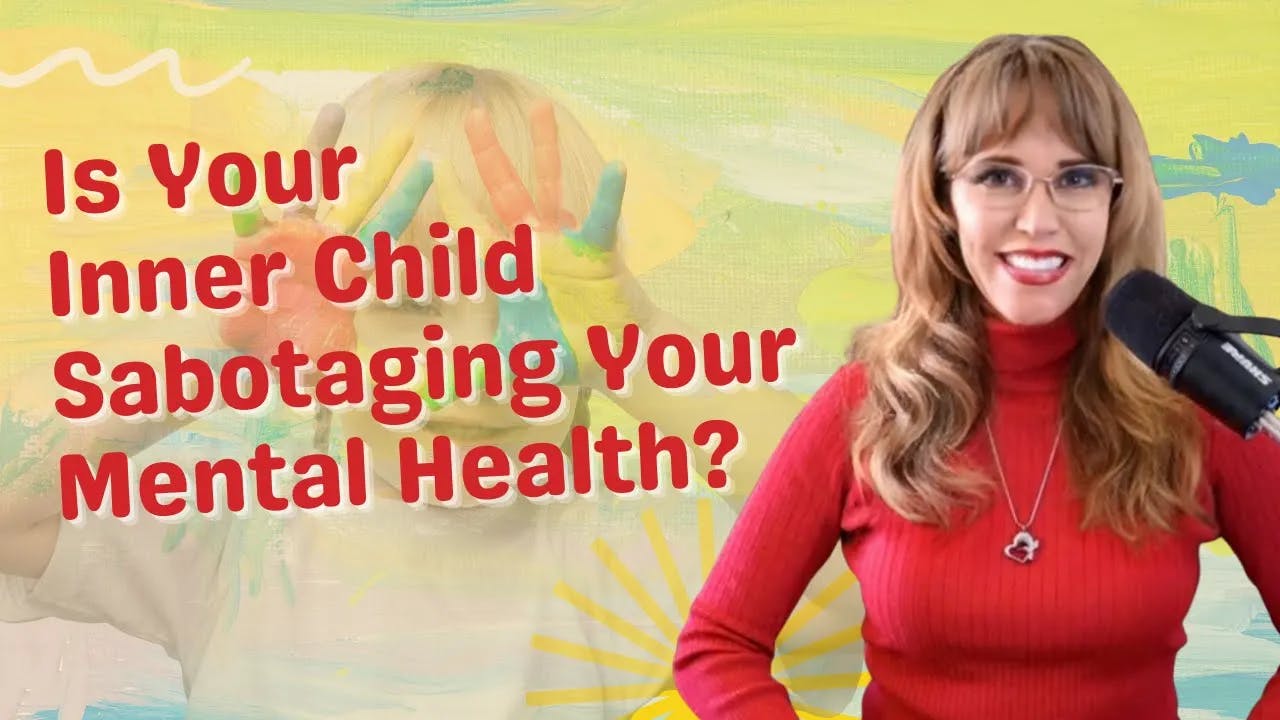


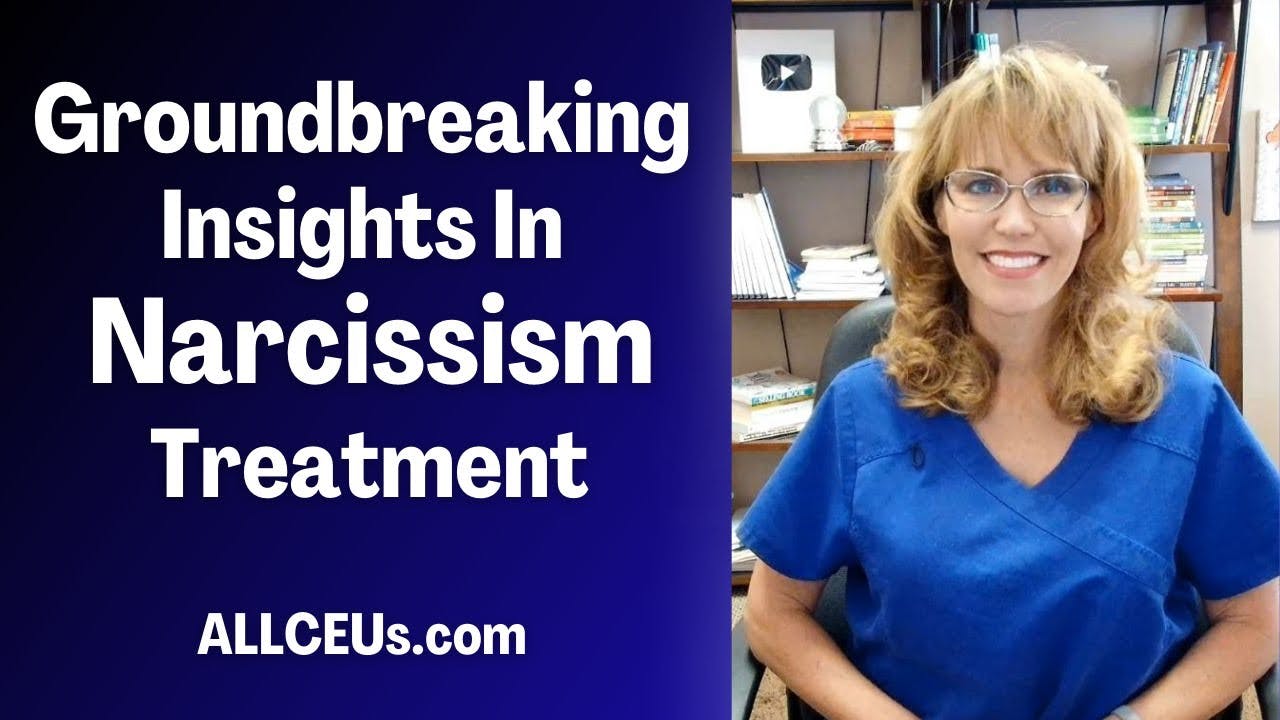
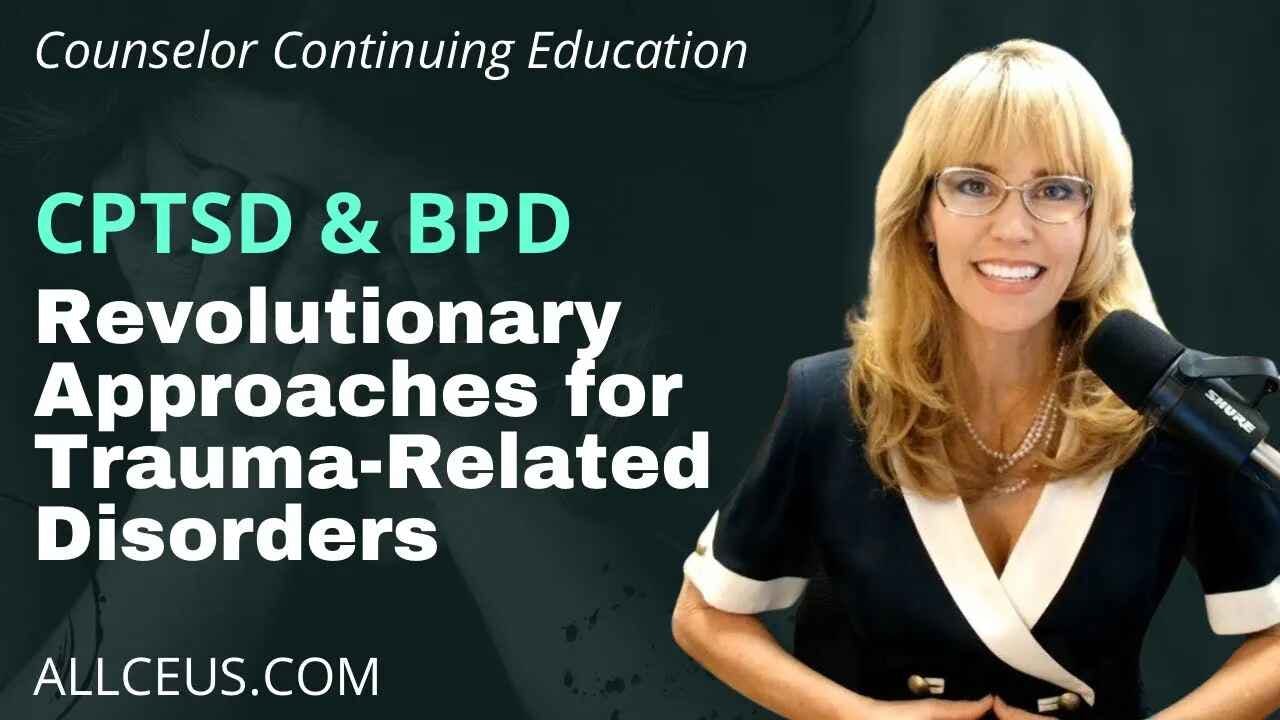
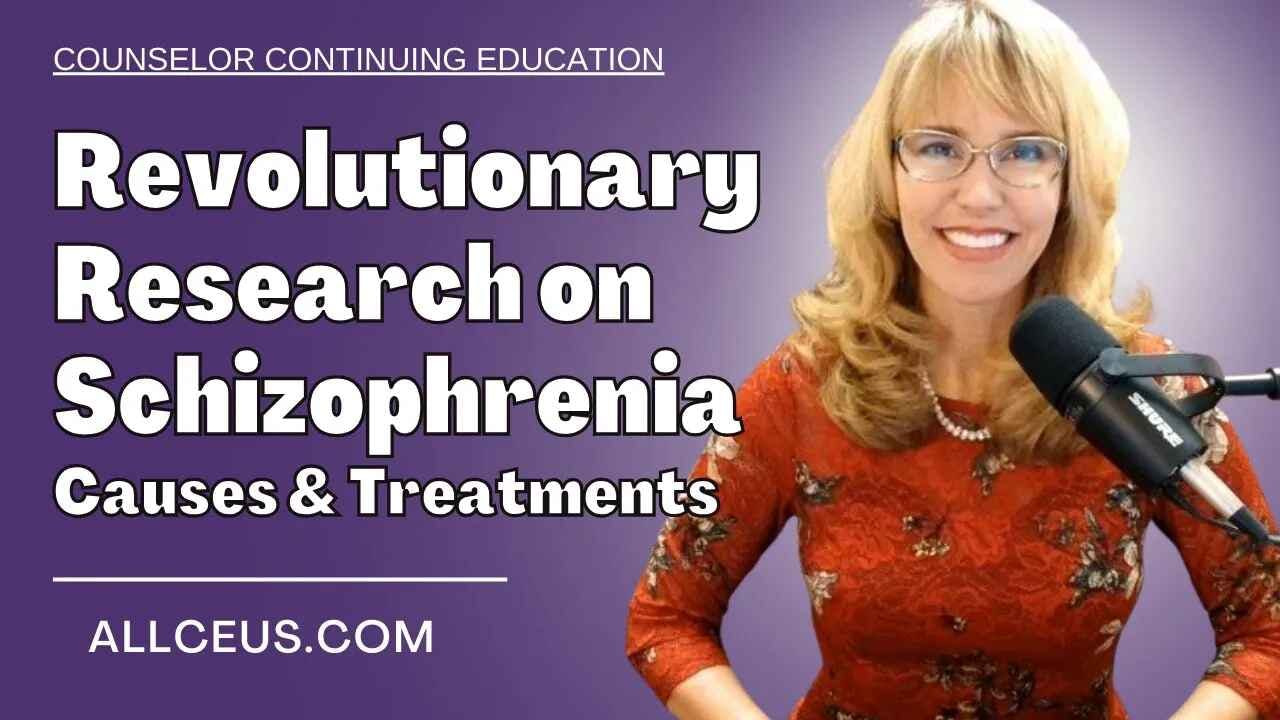






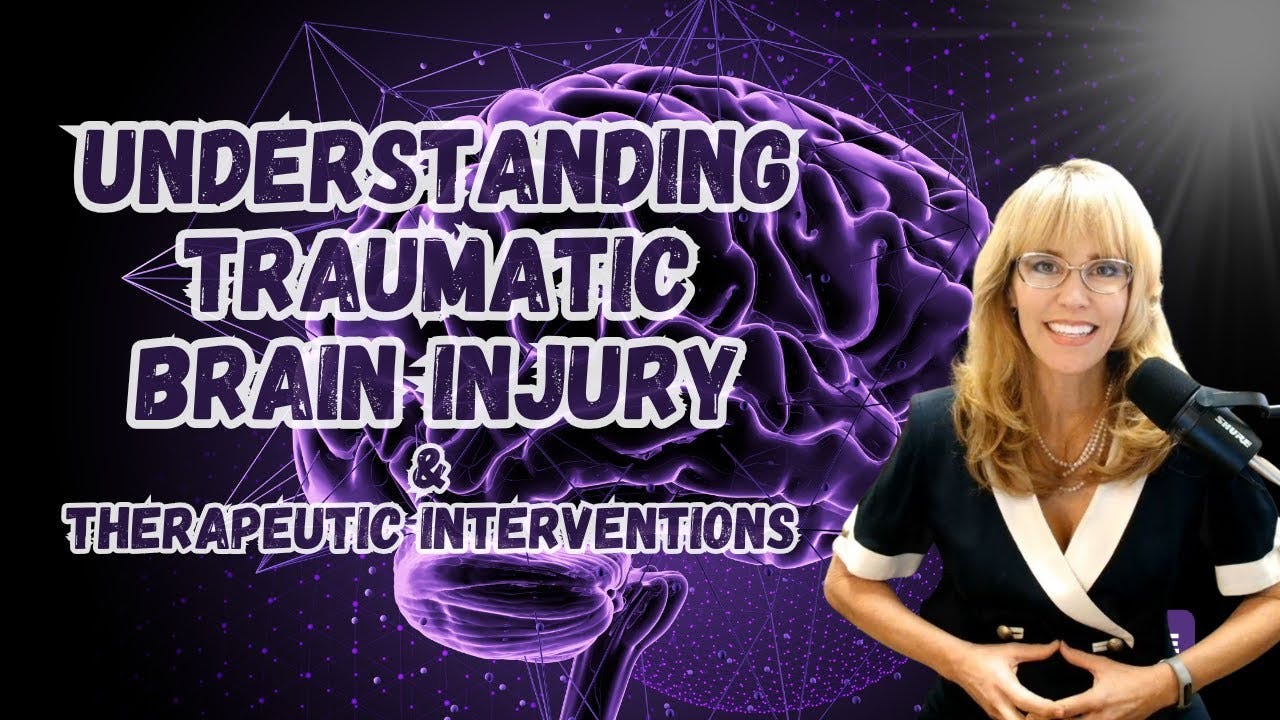
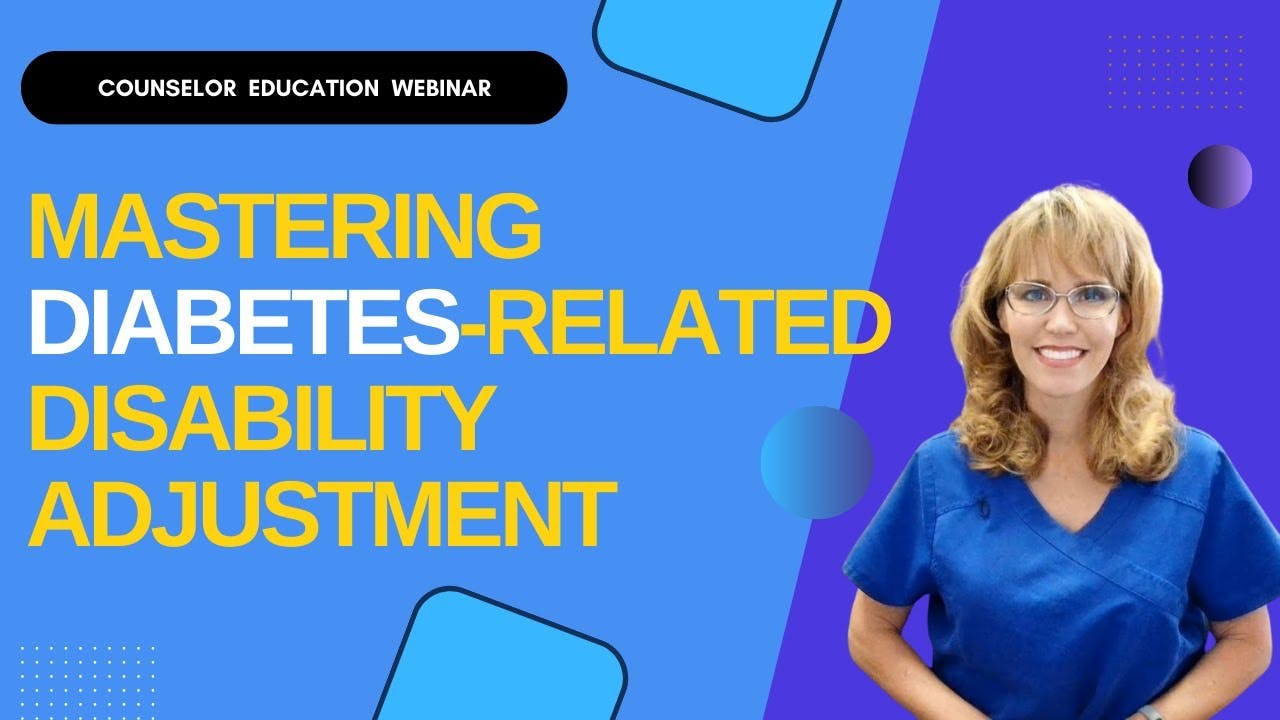



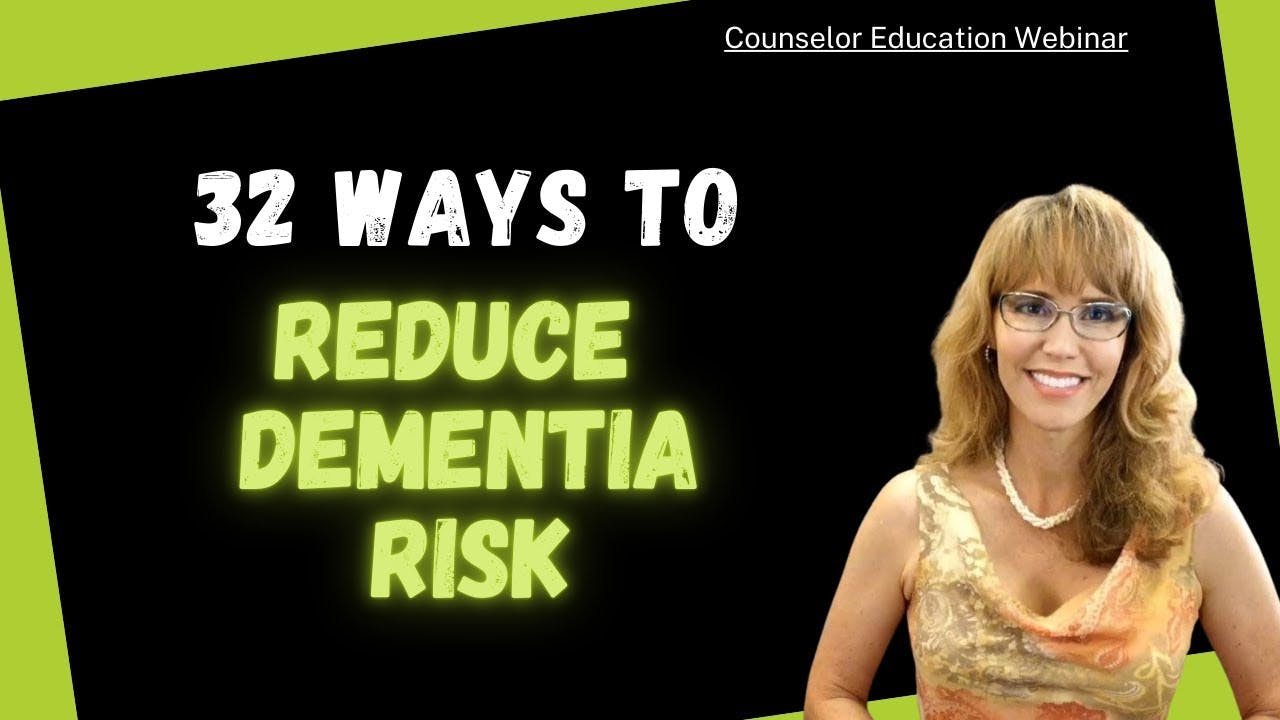



The content of the podcast doesn't match the headline.
love!!!!!!!!!
as wavouisaww w wWw 2 w w ww w waUQq ia,~°°•■8• .gbxa
👏👏👏
such a great podcast with incredible knowledge. thank you
this episode, in specific, is incredible. learning so much from your podcast.
Very helpful free content!
this episode is cutting in and out. :(
I am addictive addiction and I find these podcasts really useful
Thank you for the many relapse prevention tools I can share with my clients! How do I access the charts used for group and individual sessions mentioned in the podcast?
new to this... :) lets try
Very good podcast
Your podcast is very helpful, both professionally and personally. Thank you so much for your continued efforts. You are awesome.
This episode is so spot on. Thank you so much for providing such valuable insights.
great information. concise presentation. SO good.
As a Recreation Therapist, I could not love the content of this podcast more than I do.
SUCH good information. Make sure you keep notepad handy.
love this...my go as well
Awesome podcast. My go-to resource.
I love your podcasts! They are SO helpful as a first year full-time MSW student!❤